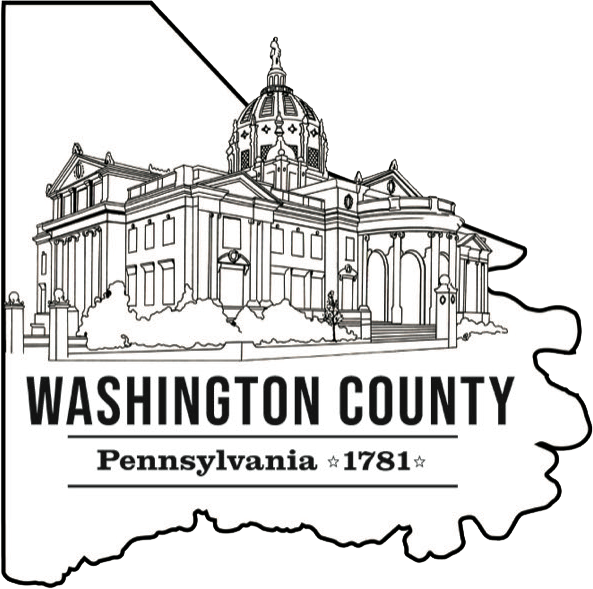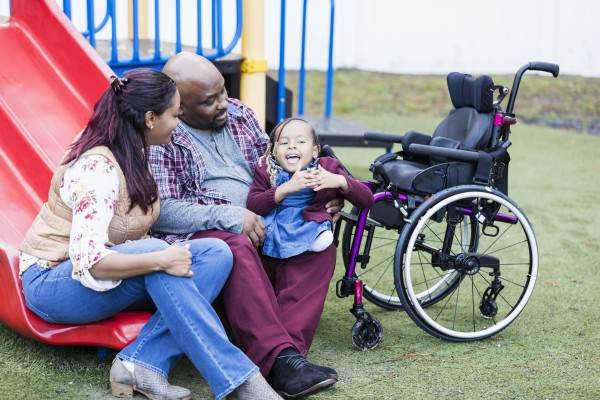Drug & Alcohol Services (Substance Use Disorder)
Services are provided in partnership with
Washington Drug and Alcohol Commission, Inc.
AGENCY OVERVIEW:
Our Vision at WDAC: To ensure every individual has the opportunity to achieve and sustain optimal wellness.
Washington Drug and Alcohol Commission, Inc. (WDAC) is an independent non-profit corporation serving as the Single County Authority (SCA) for Washington County. The SCA receives state and federal dollars through contracts with the Department of Drug and Alcohol Programs (DDAP) to plan, coordinate, programmatically and fiscally manage, and implement the delivery of drug and alcohol prevention, intervention, treatment services, case-management services and recovery support services to the residents of Washington County.
WDAC works collaboratively with the Human Services Department of Washington County to provide a wholistic, integrated care model approach to those in need. WDAC has built collaborative relationships with health care providers, school districts, human services delivery system, Court of Common Pleas, offices of adult and juvenile probation, the Washington County Correctional Facility, law enforcement and Magisterial District Judges in order to best serve our community and break the cycle of addiction. At WDAC, our sole purpose is to help people by meeting them right where they are, in a nonjudgmental way so we can help them achieve a level of stability, health and wellness that the individual can sustain long-term.
Services include:
PREVENTION
Washington Drug & Alcohol Commission, Inc. (WDAC) is responsible for the development, oversight, and management of substance abuse prevention services throughout Washington County. WDAC strives to increase the implementation of prevention programs, age-appropriate strategies, policies and practices that are based on research proving effectiveness and/or best practices within the county. The focus is to reduce risk factors associated with substance use and promote the development of healthy lifestyles that positively impact individuals across the lifespan, in their communities, families and schools.
Free prevention programs are provided to all fourteen school districts and for all ages from pre-school to senior citizens in our community.
In the schools, students are educated by utilizing both single presentations and evidence based curriculums. The term “evidence based” means that the curriculum has been researched and proven to produce positive outcomes. WDAC believes that young people who learn positive social behaviors grow up to be productive adults and make better life decisions.
To learn more about the programs, please click one of the grade levels below.
Pre-School Elementary Middle School High School
The WDAC Prevention Department also serves on the SAP (Student Assistance Program) teams in each school district. Prevention Specialists serve on the teams and are able to provide information and conduct educational groups for referred students. The SAP case manager is mobile and able to assess for level of care for any student referred through the SAP process.
The Prevention Department focuses on issues that affect our community, through presentations that address individual subjects for groups/after school programs/senior centers
WDAC Prevention department provides free information on drug, alcohol, tobacco, and gambling through several health fairs each year. WDAC office carries over 200 titles of information which comes in the form of brochures, posters, bookmarks and activity books and is available upon request.
To request a program or printed informational material please contact our office at 724-223-1181 and choose option number 4.
INTERVENTION
Intervention is the provision of services designed to encourage individuals to examine their own patterns of substance use and to reduce risky substance use behaviors. Referral is provided if the need for a structured treatment regimen or other service is indicated. This level also captures services related to HIV and Hepatitis C as well as supportive services provided to families of individuals with substance use disorder.
WDAC offers a myriad of intervention activities:
Early Intervention Programs: WDAC offers intervention/education programs for both adults and adolescents. Both intervention programs are designed to help those who are in the earliest stages of change. Early intervention is an organized screening and psycho-educational service designed to help individuals identify and reduce risky substance use behaviors. Some of the people that may benefit from this program are those that feel they don’t have a problem, those that just need to fulfill requirements for Probation, those that are tired of being told they have a problem, those that aren’t sure they are ready to make changes and those that have tried several times to make changes before and haven’t been successful.
The Student Assistance program (SAP) is another form of early intervention. The Pennsylvania Student Assistance Program (SAP) is a systematic team process used to mobilize school resources to remove barriers to learning. SAP is designed to assist in identifying issues including alcohol, tobacco, other drugs, and mental health issues which pose a barrier to a student's success. WDAC provides a prevention staff and a case management staff to each school district to provide the drug and alcohol SAP services to each district. The SCA contracts with a treatment facility to provide out-patient adolescent treatment for all identified students.
State Hotline: individuals can call 24/7 and receive crisis intervention and a direct warm handoff to the SCA for further assistance with accessing treatment
Outreach - Involves identifying substance abusing individuals and encouraging them to access treatment. Includes providing specific, ongoing outreach activities in locations where substance abusing individuals are likely to be, encouraging entry into treatment, and following-up with individuals identified during outreach activities.
Family Groups – Groups for family, friends and other loved ones of individuals with a substance use disorder. This includes support groups for family/friends as well as groups to help family/friends understand addiction and learn how to appropriately support their loved one with a substance use disorder. This also includes support groups for children of substance abusing parents/caregivers.
Naloxone Distribution: Naloxone (also called Narcan) is a safe and effective medication that can save a life by stopping an opioid overdose. Naloxone is available through WDAC or your local pharmacy
TREATMENT
WDAC holds contracts with over 75 treatment providers located in the county and outside the county. WDAC may be able to assist with treatment costs for those who have no insurance or who may be underinsured. WDAC is required through their contract with PA Department of Drug and Alcohol Programs to provide
Treatment contracts must include activities aimed at the systematic application of social, psychological or medical service methods that assist individuals to deal with patterns of substance use and problem gambling disorders.
The SCA must hold contracts with levels of care, from the least restrictive treatment service known as outpatient to the most comprehensive, hospital-based treatment. These contracts must include medication assisted treatment (MAT) modalities such as Methadone, Buprenorphine, Naltrexone, and Vivitrol, etc.
CASE MANAGEMENT
The Case Management Unit provides two distinct services:
- Screening and Assessment
- Coordination of Services
Screening and Assessment: Individuals with confirmed or suspected substance use problems may call the office and should be prepared to answer questions regarding their substance use problem through a short screening process to determine if an assessment is needed.
An assessment will determine a level of care for treatment. Referral to an appropriate treatment facility is coordinated by the case manager. Case Manager will provide or arrange for assistance to individuals to access available public funds for drug and alcohol treatment, including assistance in completing a Medical Assistance application and/or any other avenue for funding until the individual receives the appropriate financial assistance that enables access to the proper level of care.
Coordination of services is a function of case management and is offered to all individuals who are struggling with barriers as result of their use of alcohol and/or other drugs. Case coordination services assist individuals in identifying non-treatment needs (social determinants of health), develop/ expand their current skills and increase supports for individual recovery needs. Through Coordination of Services, the SCA ensures that individuals with complex, multiple problems receive the individualized services they need in a timely and appropriate manner. The process of Coordination of Services is intended to promote self-sufficiency and empower the individual to assume responsibility for his or her recovery.
Coordination of Services is a collaborative process which includes engagement, evaluation of needs, establishing linkages, arranging access to services, ensuring enrollment in the appropriate healthcare coverage, advocacy, monitoring, and other activities to address the individual’s treatment-related needs throughout their course of treatment.
Coordination of Services includes communication, information sharing, and collaboration, and occurs regularly between the case manager, contracted provider and individual receiving services.
RECOVERY SUPPORT
Recovery Support Services (RSS) are treatment-related services provided to individuals and their families to assist with recovery from SUD. These services complement the focus of treatment, outreach, engagement and other strategies and interventions to assist people in recovery in gaining the skills and resources needed to initiate, maintain, and sustain long-term recovery.
WDAC employ certified recovery specialists (CRS) who is a motivator, mentor, and advocate for the individuals they serve. A CRS can help ensure: basic needs are met, assist in meeting goals, and connect to community resources. A CRS can help individuals find their pathway to recovery, build a recovery plan and can bridge the gap between individual needs and available resources in the community.
All contacts with Case Management and Recovery Supports are treated in a confidential manner and these services are free.
GET STARTED TODAY:
If you are in need of help, or know someone that needs help, take the first step by calling us today at 724-223-1181 and choose option #1
We are here to help, and it is our pleasure to serve you.
For more information call 724-223-1181.
Cheryl Andrews
Executive Director
724-223-1181 ext. 122
cheryla@wdacinc.org
wdacinc.org
Breaking the Cycle of Addiction
Address:
Washington Drug and Alcohol Commission, Inc.
90 West Chestnut Street
Suite 310
Washington, PA 15301
Contact:
Phone number: (724) 223-1181
Toll Free: 1-800-247-8379
Fax: 724-223-1187
Hours of Operation:
Monday - Friday
8:30 a.m. - 4:30 p.m.
Latest Information
FAQs
So who is at risk for an overdose?
So what does an overdose look like?
What can you do if someone you know is experiencing an overdose?
News & Events
There is currently no news to display.











